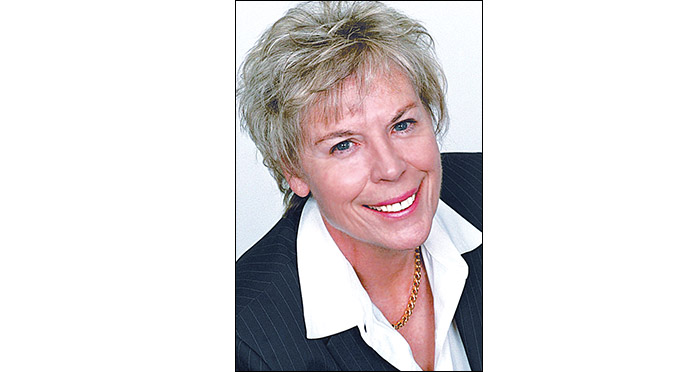(pictured above: Chris Telfer)
Independent Candidate for Oregon State Treasurer Chris Telfer CPA of Bend recently received endorsements from the Oregonian and the Salem Statesman newspapers as well as The Bulletin. The Oregonian noted in its recommendation that she is the best choice for the state treasurer office siting her past achievements, experience and willingness to tackle entrenched problems.
“Telfer’s added legislative experience gives her the edge. Telfer, who until last year was a registered Republican, was one of the four-legislators who led the bipartisan effort to successfully redraw legislative district boundaries in 2011. She and a fellow legislator also called out flawed analysis and assumptions in the financing plan for the once-planned Columbia River Crossing a few months before current Oregon State Treasurer Ted Wheeler came out with similar criticisms.
“She also brings a sense of urgency to a role that, she said, has been too much of a figurehead as opposed to a true chief financial officer for the state. The pension system’s unfunded liability, now at $22 billion, is a “crisis,” and needs to be treated as such.
“She was the only one of the three candidates to oppose an idea to restructure the investments division and bring in-house some of the management that’s contracted out to Wall Street firms.”
Telfer recently shared her top priority of addressing the PERS crisis when she is elected Oregon’s new treasurer:
- Acknowledge our PERS is in crisis and make it a #1 priority
- Advocate for the Senator Johnson/Senator Knopp task force recommendations
- Contribution rates could be 30 percent of payroll (drop below the collard at 20 percent of the rate increase if less than 70 percent funded), taking $’s from public services to fill the PERS gap. The Johnson/Knopp recommendations may be a big part of keeping the unfunded liability below 30 percent. I will explore other opportunities to maintain the unfunded liability below 30 percent.
- Amend ORS 279 so the Treasurer’s selection process of Portfolio Monitors is transparent and made by more than just the Treasurer-opaque system with a track record of ethical and legal breaches
- Redirect some of the underperforming PERS investments to affordable housing. The 16 nonprofits throughout Oregon working with the State Housing could use more money for the “Down payment assistance” program. These dollars help with the down payment of pre-qualified home buyers at a rate of 7 percent. PERS is currently recognizing less than 2 percent return on investment. The average payback of these dollars to NeighborImpact in Central Oregon is 18 months. In addition, some of the redirected PERS dollars could help with development of more affordable housing at rates in excess of the 2 percent
- Amend constitution to prohibit State Treasurer candidates from accepting $ from securities litigation firms (Pay-to-Play) which compromises the objectivity of monitoring
- Don’t borrow money to bail out PERS
- Defined-Benefit plan actuarial math just covers up some of the risks of bad plans. Need to give clarity to the math models used.
- The unfunded liability of $22 billion represents 27 percent of Oregon household income and it is these households, not the government that will end up bailing out PERS. We need to look at a shared sacrifice between PERS beneficiaries and Oregonians. Tier 2 and 3 PERS beneficiaries should be very concerned that their retirement funds will be lost to the Tier 1 beneficiaries. I will convene a joint task force of stakeholders to undertake re-negotiating Tier 1 PERS contract.
This summer Telfer said that Oregon’s next State Treasurer must take the lead in working with state regulators and the legislature to ensure Oregon provides a mechanism in which marijuana dispensaries have the means to safely and responsibly deposit their required tax payments and operate as a legitimate business. Leaving this aspect of the new marijuana law unaddressed is irresponsible and dangerous.
During the upcoming 2017 legislative session the Treasurer’s office should make it a priority to resolve this issue.
“I would propose that we create a means by which marijuana dispensaries are able to deposit their revenue and tax obligations safely and securely. The state would be able to better manage and monitor incoming revenue streams and budget accordingly. By providing a legitimate depository for revenue cannabis owners can diversify and expand business opportunities creating additional jobs.”



